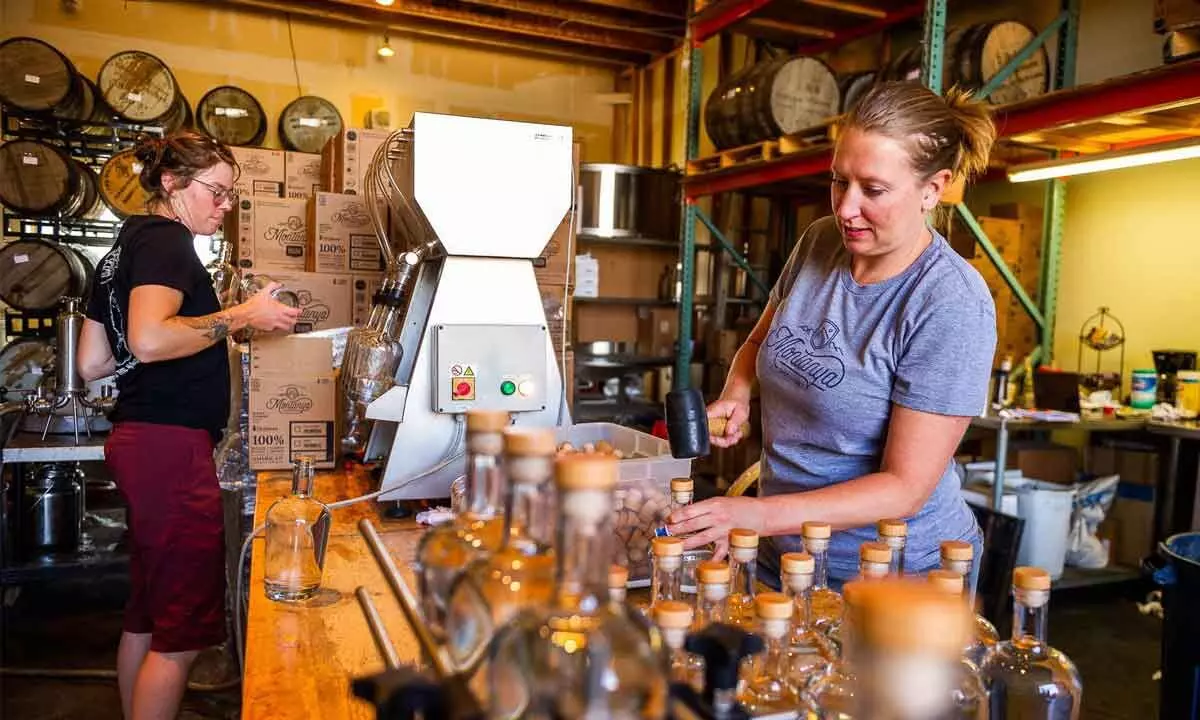Time to raise a toast for women in alcohol industry
Bacardi has taken the lead with its ‘Women in Leadership’ initiative
image for illustrative purpose

A recent research conducted at Yale by Dr. Linda Bartoshuk showed that women are twice as likely as men to be supertasters. With training, both men and women are empirically able to obtain the same proficiency in nosing and tasting but women are generally able to grasp faster, require less training and have greater olfactory memory.
This innate ability has catapulted an increasing number of young women into prominent positions as head brewers and distillers, master blenders, nosers, cicerones, sommeliers and educators. The current theory is that women’s heightened sensitivity perhaps evolved out of a primordial need to perceive low levels of contamination in food before feeding it to the more vulnerable offspring or to recognize the scents of kin in a social group. Could it not bea touch of that divine gift bestowed on women by the forgotten goddesses of our ancient heritage and craft?
Women have a long history of working in wine, spirits, and beer industry but only recently have their vast contributions - and the difficulties they face-become a prominent part of the dialogue within the beverage alcohol industry. Events such as the #MeToo movement drove women’s issues into the spotlight—and drove home the specific challenges they face in the male-dominated beverage alcohol industry, which fortunatelycontinues to evolve rapidly. New, younger voices are demanding change and experienced female leaders are actively engaged in bringing about that change.
While the number of women in the industry has undoubtedly increased, the percentage in senior leadership roles remains way below what it ought to be.
“Maybe we had success in sales and middle management, but positions in upper management are essential.The spirits industry is a 35o-billion dollar plus industry that women are currently largely underrepresented in. According to 2019 McKinsey & Co. data only four percent of women are in C-suite positions [as of 2018] and that’s a huge issue.
Simple things like maternity leave are not universally adopted by wine businesses,” goes the common refrain.
Moreover, many positions in the industry require long, labor-intensive hours in a winery or on a restaurant floor, plus the need to work nights and weekends. The physical demands are nearly impossible to sustain while pregnant or those with young children and little to no support from employers, women are compelled to make difficult choices.
One of the most glaring hurdles plaguing the industry is its overall lack of diversity. This lack of diversity not only hurts the individuals that are being held back, but data shows it hurts a business’s bottomline, too. It is statistically proven that more diverse businesses are more profitable.At Heineken, women represent 30 percent of senior management roles. Under their diversity initiative ‘Behind the Label’, their current goal is to inch that percentage to 40.
Women enjoy beer. Yet, representation in the C-suite does not reflect this. They sell products that are usually there when you’re celebrating people or a moment. They don't just bring men together but we bring people together. They want to attract people in the industry, who are diverse, and can help drive our business performance.
As in many parts of the world, the alcohol beverage industry in India has traditionally been male-dominated. For years, men have outnumbered women in various roles within the sector. The narrative, however, is changing with organizations like Bacardi making conscious and concerted efforts to encourage more women to bring their skill and expertise to the industry and empower them as leaders within the organization. Through initiatives such as their Women in Leadership (WIL) program, Bacardi is challenging stereotypes and welcoming a new era of thinking within the industry.
To increase the gender diversity ratio, there has also been a dedicated commitment to evaluating both male and female candidates for roles across functions, including finance and sales. In order to create a safe and supportive work environment, Bacardi also offers child-care facilities and secure transportation options for primas. Additionally, the company has taken steps to sensitise male employees and work on breaking the biases present in the industry.
That echoes the ethos of Brown-Forman. While the company is putting an emphasis on harboring female talent, Hawley says that it’s less about gender and more about them simply being the best for the job, whether that’s leading a manufacturing facility, executing a communications campaign, developing a public relations strategy, forecasting finances, advancing technology efforts, or running analytics teams,and, to top it all, making the best bourbon.

